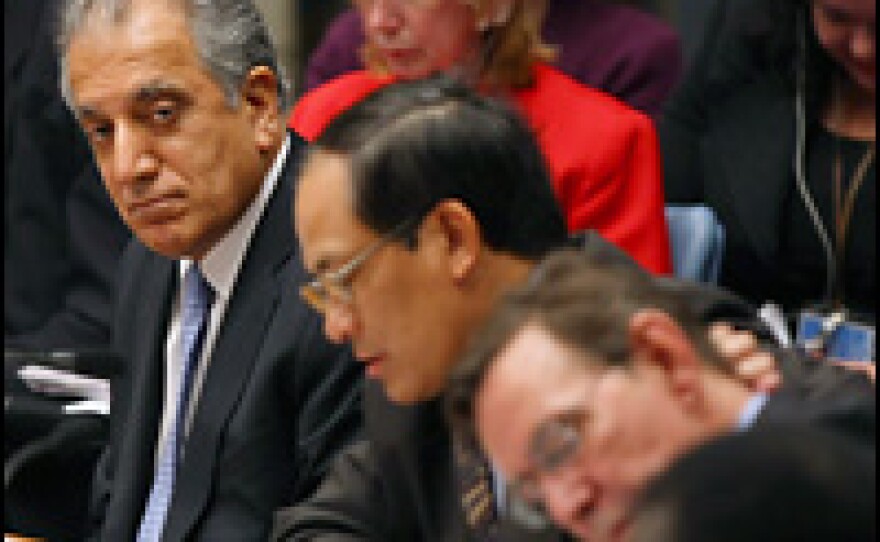U.S. Ambassador to the United Nations Zalmay Khalilzad met with activists this week who say the Security Council should do more to stop the genocide in Darfur. They asked for troops, helicopters and more pressure on the Sudanese government.
Khalilzad, who currently occupies the rotating presidency of the Security Council, says he agrees with the sentiment.
"We have had a problem that the government of Sudan does not want to have an effective force there to protect the people," Khalilzad tells NPR's Renee Montagne. "And some members of the council, in particular China, have been protecting the government from further council action. And we will work with the Chinese — engage them, press them — so that it cooperates."
China has economic interests in the Sudan, such as oil. "Also, the Chinese tend to believe that the emphasis needs to be on a political settlement between the rebels and the government," Khalilzad says. "We think a political settlement is important, but given the fragmentation of the rebel movement, we believe that that's going to take time. In order to deal with the situation in terms of violence, in terms of [the] humanitarian situation, we need to send forces to protect the civilians while we work on the political track."
However, despite approval for 26,000 international soldiers, not even half that many are actually there.
"The secretary-general has said his plans are to have 80 percent of the force there by the end of the year," Khalilzad says. "We want to make sure that that happens."
Khalilzad, who was born in Afghanistan, served as the U.S. ambassador to Afghanistan and Iraq after the U.S. invasions in those countries. He says Afghanistan's government faces a tough time in dealing with problems of corruption and accountability, as well as with the Taliban.
"It needs to move forward on a number of issues," he says. "At the same time, the international community needs to sustain and enhance its effort in support of those efforts by the Afghans."
Khalilzad denies rumors that he might run for president of Afghanistan next year. "I'm the U.S. representative at the United Nations. I'm proud of doing that. I will help Afghanistan when I leave this job. ... I've stated what I've stated repeatedly: I have a soft spot for Afghanistan, but running for the president is not a part of my plan."
Copyright 2022 NPR. To see more, visit https://www.npr.org. 9(MDAzMjM2NDYzMDEyMzc1Njk5NjAxNzY3OQ001))






